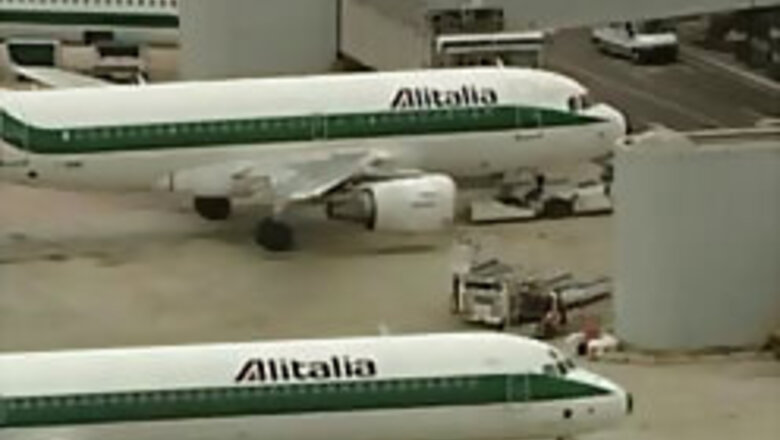
views
Moscow: A series of bankruptcies that have hit some leading air carriers and tour operators in the past month suggest that a serious crisis is brewing in global civilian aviation.
Over the last six months about three dozen strong players have stopped or suspended operations. Among them are Russia's AiRUnion, Britain's XL Airways UK and Italy's Alitalia.
A group of Italian investors has withdrawn its € one billion bid to save the troubled carrier. Union leaders have rejected the bailout plan which would have cut 7,000 jobs.
The resistance comes despite pressure from Italian Prime Minister Silvio Berlusconi. Alitalia, which loses about € two bln a day, now faces liquidation. The airline has just enough money to buy fuel for a few more days.
The latest report by the International Air Transport Association (IATA), issued early in September, is pessimistic. Before the year is out, it says, air carriers will suffer a total loss of $5.2 billion or twice as much estimated earlier.
The reasons, the report believes, lie in "a poisonous combination of high prices and falling demand." The line of logic here is simple: the costlier the jet fuel, the higher the fares and the fewer the air travelers.
Four years ago, when the price of jet fuel rose by half, the number of passengers dropped by one percent. This year, fuel prices have shot up by 70 percent, and statistics already show a fall of 1.9 percent in traffic - a five-year high.
This means millions of people have decided against flying. Carriers cannot help recalling the "black year 2001" when the Sep 11 terror attacks brought a fall in flights and caused civil aviation across the world to lose approximately $12 billion.
Unlike the rest of the world, Russian airlines are not seeing a shortage of passengers. Although fares, like tour prices, keep growing the numbers of would-be buyers are not falling.
Experts believe, however, there is a ceiling to this process which cannot be exceeded, for otherwise there would be a stampede away from trips. But it does not yet seem to have been reached.
Last year, Russian companies carried 45 million people, while this year the figure is expected to rise by 20 percent or even more. The question is rather if Russian carriers will be able to cope with this flow of passengers.
The financial situation of many Russian air companies, especially smaller and medium companies with one to ten airliners each, is far from dazzling. But even some larger fish are not immune from bankruptcy, as the case of AiRUnion shows.
And it is not the only company with a debt to settle. There is, according to Rosaviatsia chief Yevgeny Bachurin, yet another Russian carrier - the low-budget Sky Express - which is now facing the prospect of losing its license.

















Comments
0 comment